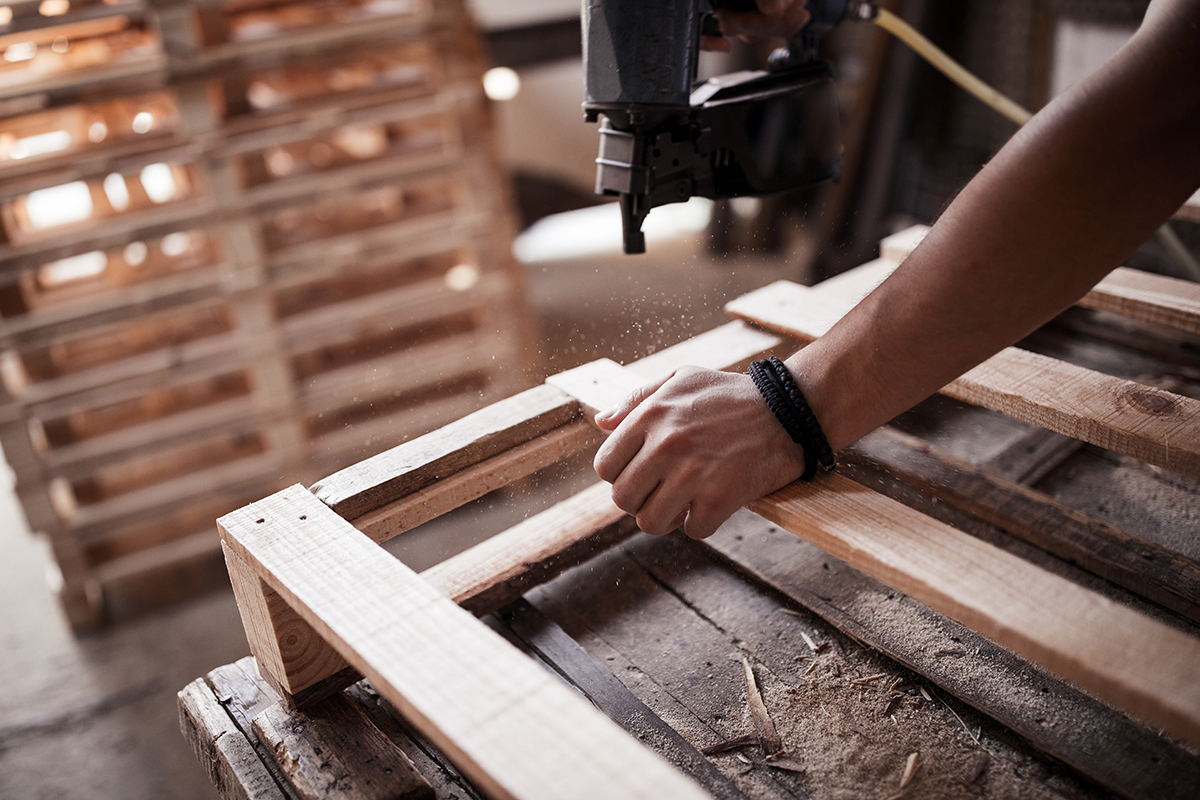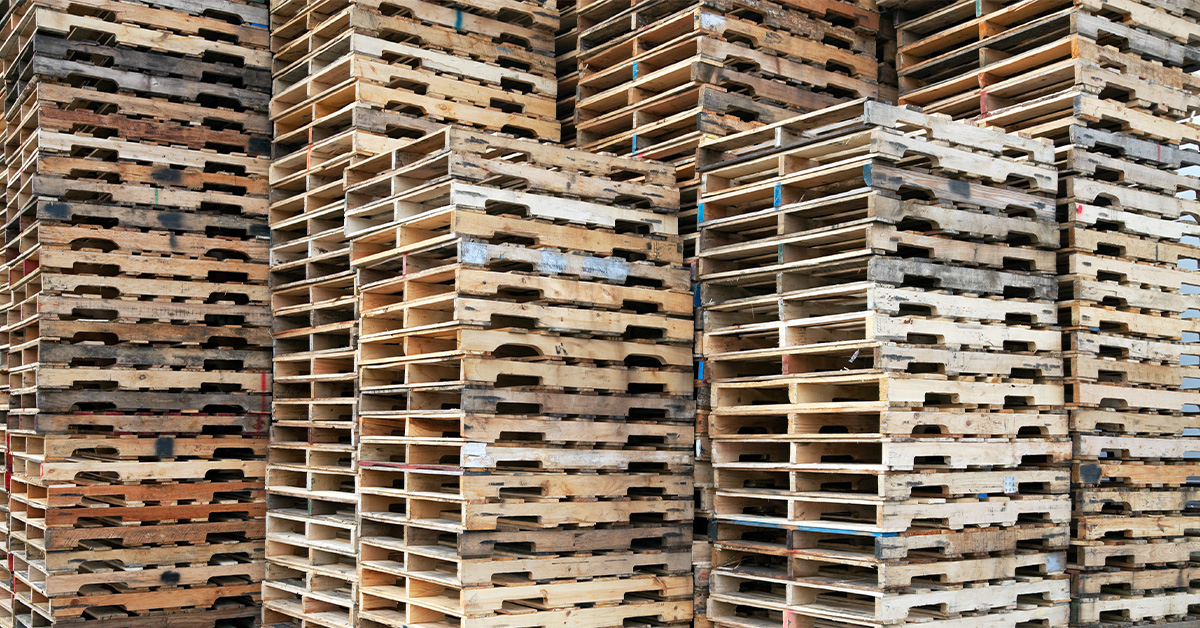Pallets are an integral part of the manufacturing sector, with more than 1.8 billion pallets in service in the United States each day. Wooden pallets make up the majority of those pallets used on any given day. They are considered one of the most reliable ways to transport goods safely and effectively. Wooden pallets are often refurbished or turned into recycled pallets for continued use.
Depending on your industry and product, will determine what kind of pallet would work best for you and your supply chain. There are pros and cons to all pallets on the market and need to be looked at individually to see what meets your needs. There are new wood pallets, refurbished and recycled pallets, and plastic pallets, among others.
In this article, we will discuss why recycled pallets should be avoided in favor of new wooden pallets.
Three Reasons to Leave Recycled Pallets in the Past:
Debating on whether to buy new or recycled pallets? Well, consider this information first!
1. Condition
The first reason to not choose recycled pallets is that you never know what the true condition is of what you’re buying. There can be issues with pallets that cannot be seen on the outside. Cracks and other damage can be hidden from sight and affect the integrity of the recycled pallets. Because of this, recycled pallets are more likely to have a pallet failure incident than new wooden pallets.
Cleanliness is another factor to think of when buying recycled pallets. Pallets only have to be treated once in order to gain a stamp, but that does not mean that they cannot come into contact with issues later on. Mold and pests can be a big issue with recycled pallets and could affect their ability to safely transport products.
Lastly, recycled pallets can come from vendors that use shortcuts to increase their profits. This could include:
2. Limited Custom Options
Recycled pallets usually come in standard sizes because those are the most used sizes within different industries. If you need any custom sizes or dimensions, it can be difficult and expensive to find in recycled pallets. You can work with a pallet supplier that can help you determine what dimensions will work best for your specific product and supply chain.
Furthermore, it is important to use the correct dimensions for your product for many reasons, cost being the main one. If you make a standard size work when it is not optimal, it can lead to in-transit damage that can end up costing more than you save going with recycled pallets.

3. Consistency
Recycled pallets originate from dozens of different pallet manufacturers and can lack overall consistency. They may all have the same dimensions, but board thickness, nail, and fastener placement will differ between companies. When you are ordering recycled pallets you never really know what you are getting.
On the other hand, new pallets are most likely purchased from the same pallet supplier and remain consistent. This keeps the consistency of quality, strength, and cleanliness throughout all your pallets. Investing in new pallets takes the headache and worry out of the wood packaging process. You know that your pallets are going to perform at the same level every time.
Why Buy New Pallets
As we stated above, new pallets are superior to recycled pallets because they are in better condition, less likely to cause a pallet failure, are fully customizable, and are consistent across the board. You can trust that the pallets you are using have been built to your specifications, have proper nail placement for optimal strength, and have the right number of fasteners for your product load.
When you buy new wooden pallets, you know that they have strength and durability for the products they will be carrying. With recycled pallets, you often don’t know for certain they aren’t missing nails or have cracks that could cause damage to your products.
When you think of the long-term costs and troubles that recycled pallets can bring, using new pallets becomes the obvious choice.



![[PRESS RELEASE] Conner Industries Announces Major Guardian Packaging Expansion](https://conner.b-cdn.net/wp-content/uploads/2024/10/Guardian-Packaging-Expansion-500x383.jpg)
![[PRESS RELEASE] Conner Industries Announces Website Dedicated to Integrated Packaging Division](https://conner.b-cdn.net/wp-content/uploads/2024/05/Conner-Packaging-Blog-500x383.jpg)


